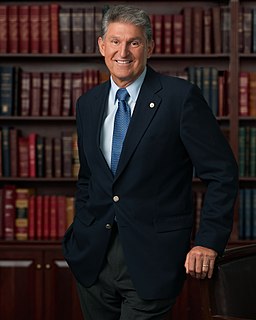A Quote by Reshma Saujani
For the American economy, for any economy to grow, to truly innovate, we cannot leave behind half our population. We have to socialize our girls to be comfortable with imperfection, and we've got to do it now. We cannot wait for them to learn how to be brave like I did when I was 33 years old.
Related Quotes
If I've learnt anything over the last six years it's that the most important thing is the strength of our economy. That is how we pay for our NHS, how we build schools, how we provide opportunities for people. And I'm in absolutely no doubt that our economy will be stronger if we stay in and will be weaker and at risk if we leave.
Secretary [Hillary] Clinton and others, politicians, should have been doing this for years, not right now, because of the fact that we've created a movement. They should have been doing this for years. What's happened to our jobs and our country and our economy generally is - look, we owe $20 trillion. We cannot do it any longer.
I promise to do everything in my power to achieve energy independence and to do so within ten years and to stop global warming, which says to the American people that we are about the future, about addressing how we create jobs, how we care for our children, how we grow our economy, and how we preserve our planet.
Only by transforming our own economy to one of peace can we make possible economic democracy in the Third World or our own country. The present economy generates wars to protect its profits and its short-term interests, while squandering the future. Unless we transform the economy, we cannot end war.
Now we're in a very different economy. Throughout the late 1980s and 1990s American management started to do the right things. There was extraordinary investment in technology. The dominant questions now are less how to do it better, how to manage better, how to make the economy better, than how to have fuller and more meaningful lives. Because the irony is, now that we've come through this great transition, even though our organizations and our people are extraordinarily productive, many feel that the nonwork side of life is very thin.
I find that because of modern technological evolution and our global economy, and as a result of the great increase in population, our world has greatly changed: it has become much smaller. However, our perceptions have not evolved at the same pace; we continue to cling to old national demarcations and the old feelings of 'us' and 'them'.
I made an effort to ensure social safeguards. But our economy has to grow - and Chile, with a population of 17 million, cannot depend entirely on its domestic market. Which is why the decision to focus on exports, made at the beginning of the democratic era, was the correct one. We are continuing to do so. For a long time, Chile has been successful in combating poverty. But now we must focus more on fighting inequality.
I certainly wouldn't say that we loved the arms race. Trillions of dollars were used to stoke it. For our economy, which was smaller in size than the American economy, it was a burden. But one cannot agree with the statement that the arms race played the key role in the collapse of the Soviet Union.
This country pays a price whenever our economy fails to deliver rising living standards to our citizens - which is exactly what has been the case for years now. We pay a price when our political system cannot come together and agree on the difficult but necessary steps to rein in entitlement spending or reform our tax system.




































